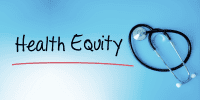Editor’s note: The author uses substance use disorder as a diagnostic term. However, some of the research he cites uses a different term, such as drug addiction or drug misuse. In those cases, to ensure an accurate description of the study, he retains the specific terminology of that study.
People with substance use disorders suffer not just from the disorder itself but also from discrimination. In a 2014 survey, more than half of respondents said treatment options for people with drug addiction (the survey’s term) aren’t effective—and nearly half opposed increasing government spending on treatment. What’s more, almost two-thirds believed discrimination toward people with drug addiction isn’t a serious problem and 43% opposed equivalent insurance benefits for drug addiction. The overwhelming majority (78%) said they wouldn’t work closely with someone with a drug addiction.
The survey highlights stigmas and stereotypes related to substance use disorders, as well biased attitudes toward people with these problems. (See Key facts about substance use.) Even many nurses and other healthcare professionals have negative attitudes, which may contribute to suboptimal care or create barriers to care.
Exploring nurses’ attitudes
Nurses see patients with substance use disorders in emergency departments (EDs) and many other settings. In 2009, almost 1 million visits to public nonfederal EDs involved use of an illicit drug; the total number of drug-related ED visits was estimated at 4.6 million.
Like the general public, many nurses think poorly of people with substance use disorder. Substance use can cause not only physical signs and symptoms but also behavioral dysregulation that may be beyond the person’s control.
Nursing literature describes a variety of nurses’ attitudes and feelings toward patients with substance use disorders, including:
• intolerance
• anger
• distrust
• powerlessness
• anxiety
• feelings of being manipulated by these patients
• frustration, futility, and disappointment related to patient relapse and recidivism.
A longitudinal review of the literature on nurses’ attitudes revealed many nurses across three decades believed treatment for substance use disorders was hopeless and “misusers” (the study authors’ term) were irresponsible. However, surveys from recent years showed nurses’ attitudes have improved over three decades, becoming more positive and less condemnatory. Also, younger respondents with more education are likely to be optimistic about the treatment of alcohol use disorders specifically. As the next generation of nurses enters the workforce, this is good news.
A fairly recent review from Australia showed that nurses’ attitudes toward patients with problem alcohol use improved over time. Study authors noted that “on average, the nurses had neutral to positive attitudes regarding alcohol problems, which is encouraging compared to the predominantly negative views uncovered by research from the 1980s and 1990s.”
But nurses’ perspectives on patients with substance use disorders aren’t defined by straightforward improvement. The picture is more complex, with dissonance between what nurses value and how they feel and behave. The authors of the longitudinal review cited above noted that although nurses’ attitudes improved over time, “a significant minority…continued to stereotype alcohol and drug misusers negatively.” Authors of the Australian review found consistent pessimism in a solid minority of nurses, including 14% who didn’t want to work with patients who are “drinkers” and 12.5% who found little reward in working with people with alcohol problems. (See Vicious cycle: Knowledge deficit, poor care, escalating demands.)
Even in the context of negative perceptions of patients with substance use disorders, nurses can simultaneously feel sympathetic concern and an ethical duty to care for them. They may experience their ambivalent feelings as internal struggles, feeling frustrated even as they strive to understand patient suffering and focus on patient strengths and the possibility of a better future.
Why nurses have negative feelings, and what can be done
Nurses consistently say lack of knowledge or competence in caring for patients with substance use disorders contributes to their negative feelings, including powerlessness and anxiety. A 2014 qualitative study found nurses believed they lacked knowledge of substance abuse and dependence, which caused “a disconnect in their ability to care for patients with both physiologic and psychiatric disorders.” This knowledge deficit can perpetuate suboptimal care, and nurses recognize this.
One thing is clear: Nurses must become more knowledgeable about substance use disorders to care for patients effectively. Few have had adequate, if any, educational preparation in substance use disorders. Yet education can lead not just to more effective care but also to improved attitudes. In one comparative study, undergraduate nurses received 16 hours of substance- use education that included theory, epidemiology, identification of alcohol-related harms, and nursing-care elements (such as patient education, counseling, brief interventions, and motivational interviewing). This education led to greater knowledge and improved attitudes toward working with patientswho had alcohol problems— specifically in students’ ability to help them. It also increased their personal and professional satisfaction in this work. Other studies show that even brief educational programs that focus on treating substance use disorders can improve nurses’ knowledge, confidence, and attitudes.
Beyond education
But education alone isn’t enough. Nurses also need support. A 2014 study of hospital-based medicalsurgical nurses who’d received 10 hours of drug and alcohol education plus role support found they had better therapeutic attitudes when working with patients who had substance use disorders. The strongest factor related to this improvement was having someone to collaborate with in creating the plan of care.
A cross-sectional survey of generalist nurses in Australia found role support was the strongest driver of nurses’ therapeutic attitude and that workplace educationon illicit drug use was useful only when combined with role support. Other studies identify education, training, and support as key factors in improving providers’ attitudes toward patients with substance use disorders.
Of course, other healthcare professionals also need more than just education to improve their attitudes and to reduce patient stigmatization. In the 1990s, all healthcare professions began using a disease model of substance use disorders. Providers generally are knowledgeable and confident when it comes to disease models of illness and care. Yet while the paradigm has shifted to some degree, an attitude shift didn’t follow. Perhaps this shows that personal and institutional stigmas are slow to change, even as care structures evolve.
Resources for change
In nursing, we can identify numerous resources for support in caring for patients with substance use disorders. Unit or system educators, such as clinical nurse specialists, can design specific support programs based on patient and provider needs. Those helping to improve nurses’ attitudes (and care outcomes) toward patients with substance use disorders should investigate available support options to treat patients effectively. Ideally, they should identify local champions who have, or can pursue, addictions certification from the International Nurses Society on Addictions (IntNSA) at the registered nurse (RN) or advanced practice RN level. Also, the Providers’ Clinical Support System for Medication Assisted Treatment, a joint project of numerous substance use treatment organizations, has a mentoring program that includes nurse mentors. In addition, the American Psychiatric Nurses Association has an addictions council and offers many online resources. (See Resources for support, information, and education.)
Many effective evidence-based treatments for substance use disorders exist and can be applied to excellent effect. The Affordable Care Act and the 2016 federal budget created additional opportunities to devote public funds toward effective treatments.
Patients with substance use disorders can—and do—get better every day. According to the Kaiser Family Foundation, nurses in the United States (including both RNs and licensed practical nurses) number approximately 3.96 million. We represent the largest healthcare workforce in the country. By pursuing education and support in treating patients with substance use disorders, we can lead the way in reducing stigmas and discrimination.
But we can improve more than just our attitudes. Let’s also improve treatment for patients with substance use disorders. Our patients need and deserve it.
Matthew Tierney is an associate clinical professor in the Department of Community Health Systems of the University of California, San Francisco School of Nursing.
Selected references
Barry CL, McGinty EE, Pescosolido BA, Goldman HH. Stigma, discrimination, treatment effectiveness, and policy: public views about drug addiction and mental illness. Psychiatr Serv. 2014;65(10):1269-72.
Bartlett R, Brown L, Shattell M, Wright T, Lewallen L. Harm reduction: compassionate care of persons with addictions. Medsurg Nurs. 2013;22(6):349-53,358.
Cherpitel CJ, Ye Y. Drug use and problem drinking associated with primary care and emergency room utilization in the US general population: data from the 2005 national alcohol survey. Drug Alcohol Depend. 2008;97(3):226-30.
Crapanzano K, Vath RJ, Fisher D. Reducing stigma towards substance users through an educational intervention: harder than it looks. Acad Psychiatry. 2014;38(4):420-5.
Crothers CE, Dorrian J. Determinants of nurses’ attitudes toward the care of patients with alcohol problems. ISRN Nurs. 2011;2011:821514
Ford R, Bammer G, Becker N. The determinants of nurses’ therapeutic attitude to patients who use illicit drugs and implications for workforce development. J Clin Nurs. 2008;17(18):2452-62.
Howard MO, Chung SS. Nurses’ attitudes toward substance misusers. I. Surveys. Subst Use Misuse. 2000;35(3):347-65.
Johansson L, Wiklund-Gustin L. The multifaceted vigilance—nurses’ experiences of caring encounters with patients suffering from substance use disorder. Scand J Caring Sci. 2016;30(2):303-11.
Junqueira MA, Rassool GH, Santos MA, Pillon SC. The impact of an educational program in brief interventions for alcohol problems on undergraduate nursing students: a Brazilian context. J Addict Nurs. 2015;26(3): 129-35.
Kaiser Family Foundation. Total number of professionally active nurses. April 2016.
Monks R, Topping A, Newell R. The dissonant care management of illicit drug users in medical wards, the views of nurses and patients: a grounded theory study. J Adv Nurs. 2013;69(4):935-46.
Neville K, Roan N. Challenges in nursing practice: nurses’ perceptions in caring for hospitalized medical-surgical patients with substance abuse/dependence. J Nurs Adm. 2014;44(6):339-46.
Pescosolido BA, Martin JK, Long JS, et al. “A disease like any other”? A decade of change in public reactions to schizophrenia, depression, and alcohol dependence. Am J Psychiatry. 2010;167(11):1321-30.
Rassool GH, Rawaf S. Predictors of educational outcomes of undergraduate nursing students in alcohol and drug education. Nurse Educ Today. 2008;28(6):691-701.
Savage C, Dyehouse J, Marcus M. Alcohol and health content in nursing baccalaureate degree curricula. J Addictions Nurs. 2014;25(1):28-34.
Substance Abuse and Mental Health Services Administration. Center for Behavioral Health Statistics and Quality. Results from the 2015 National Survey on Drug Use and Health: Detailed Tables. September 8, 2016.
Substance Abuse and Mental Health Services Administration. Center for Behavioral Health Statistics and Quality. The DAWN Report: Highlights of the 2011 Drug Abuse Warning Network (DAWN) Findings on Drug-Related Emergency Department Visits. February 22, 2013.
van Boekel LC, Brouwers EP, van Weeghel J, Garretsen HF. Healthcare professionals’ regard towards working with patients with substance use disorders: comparison of primary care, general psychiatry, and specialist addiction services. Drug Alcohol Depend. 2014;134:92-8.
van Boekel LC, Brouwers EP, van Weeghel J, Garretsen HF. Stigma among health professionals towards patients with substance use disorders and its consequences for healthcare delivery: systematic review. Drug Alcohol Depend. 2013;131(1-2):23-35.



















3 Comments.
Thank you for the amazing article and great comments! It was a useful and great information.
I agree, many times we are lied to outright , then when pressed are told oh well that must have been when i was in a room and there was powder on the floor and i touched it. This all delays talking to the social workers and the Mds because they want to know the last time they used and how much but no one wants to just be up front about it!
I am writing in response to the article Improving Nurse’s Attitudes Toward Patients With Substance Use Disorders, by Matthew Tierney in November 2016 vol 11 issue 11 of American Nurse Today journal. In reading this article, it really heightened my awareness to how difficult this topic is to discuss and provide care to patients with this diagnosis without being biased. The lack of education in dealing with such patients is a disservice not only to nurses but also to the patients.
Substance use disorders are not limited to a certain group or class of people. It is seen throughout facilities large and small from the Emergency Room to Labor and Delivery. As a Maternal Child Health nurse, I have experienced this first hand. It is hard to set aside judgement and personal feelings when dealing with these patients who have this diagnosis. With additional education, nurses would be more confident when approaching patients with this diagnosis or those who have not been diagnosed but have a substance use problem. Many within my experience do not think they have a problem with substance use. In discussion, they are not upfront with their use or what they are using prior to hearing toxicology results. When the patient is confronted with the positive results (alone to maintain confidentially) they appear to be taken back like they “have been caught in the act”. It is pertinent as nurses we stress the importance of them not withholding information on their use. This is for their own safety and for the safety of their infant. This is imperative for the medical team in order to provide appropriate care. These patients have to be informed that during the labor process their pain may be hard to manage due to the history of substance use creating an intolerance and poor receptor availability. (ACOG Committee on Health Care for Underserved Women & American Society of Addiction Medicine, 2016).
Some of these patients do not want this information discussed in front of their significant other, father of the baby, family or visitors. The patient is informed that the hospital social worker and the pediatrician will be discussing this with them and the father of the baby (since it is his child also). Patients are given the opportunity to come forth and disclose the substance use prior to these encounters. The infant will have a drug screen obtained with urine and a meconium (first stool) which indicates maternal substances used for the previous 3 months in utero. Nurses discuss infant withdrawal symptoms (including tremors, poor feeding, vomiting, irritability, inability to be consoled), extended length of hospital stay to observe for these signs and symptoms, Neonatal Abstinence Scoring (NAS) and possible morphine administration to help these infant withdrawing. These discussions are difficult to address without being judgmental. It is also difficult for parents to hear. Some of patients get defensive and feel as if they are being picked on or attacked for their substance use. Others seem remorseful or in denial.
In conclusion, as stated in the article, “the lack of knowledge about substance use can cause patients to escalate their demands, resulting in poor care”. Educating nurses with tools to care for these patients benefits patient, nurse and faculty. When care is given with confidence and understanding nurses can treat patients without discrimination or bias. We strive to earn their trust and convey that we are not here to judge them but to offer the appropriate care they need. In turn, we need them to be honest with us. Nurses would benefit from the additional education to address these situations with authority, understanding and confidence.
Regards,
Mary Patton, RNC-OB